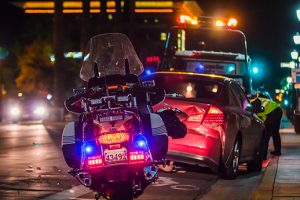
Accident report privilege is a law in Florida that protects drivers and passengers that are involved in a car accident from having their statements used against them in court. This means that if you are involved in an accident, the information that you provide to law enforcement can not be used against you in a civil or criminal court.
Florida Statute 316.062 provides that the driver of any vehicle that is involved in a motor vehicle crash resulting in injury or death SHALL provide:
- Name, address and registration of vehicle they were driving; and
- provide a copy of driver’s license or permit to the other driver or occupant of the other vehicle; and
- provide drivers license and provide information to police that are investigating the crash; and
- provide assistance to another driver or occupant of the other vehicle who appears to be injured.
If you are a passenger in a car involved in an accident, then you shall be required to do the same as the driver and provide information requested. In Brackin v. Boles, 452 So2d 540 ( Fla. 1984), the court held that the purpose of the accident report privilege is to grant immunity to the driver and passengers by not allowing their statements to be used against them in a court of law.
However, in 2019, the second district court in Anderson v. Mitchell, 300 So.3d 693, held that section 316.066(4) is not really a privilege because the driver and/or passengers are required to make statements which law enforcement may quote in their accident report. This information becomes public information however said statements are precluded from being introduced in a court of law.
What if I am a witness to an accident?
If you are a witness to an accident, you are not protected by accident report privilege and your statements can be used in court. If you have witnessed an accident, you should relay the information to law enforcement or at least give your contact information to the injured parties.
Several cases have determined that accident report privilege in Florida does not apply to eyewitness testimony of individuals not involved in the accident. See McTevian v. Schrag, 446 So.2d 1183 (Fla. 4th DCA 1984). Basic premise is that any driver and/or occupant of a vehicle that gives law enforcement information regarding their car accident cannot have their statements used against them in a civil or criminal court. However, the court went on to say that the purpose of the statute was not to protect individuals who were not involved in an accident from giving their eyewitness testimony to police.
When Should I Seek Legal Help?
If you have been involved in an accident, whether as a driver, passenger or witness, it is important to seek the advice of an experienced personal injury attorney as soon as possible. An attorney can review the facts of your case and advise you of your rights and options. Do not wait to call, the consultation is free.
After An Accident Investigation The Police Must Switch Hats If They Are Performing A Criminal Investigation
In the state of Florida, if you are involved in a car accident, the police may ask you to step out of your vehicle so that they can investigate the car wreck. As stated above, you are compelled to answer their questions regarding the accident investigation. However, if an officer reads you Miranda Warnings then he is “switching hats” and now asking questions related to his criminal investigation. The Miranda warning is a set of advisements that originates from the Supreme Court case Miranda v. Arizona. In this case, it was determined that a suspect’s Fifth Amendment right to remain silent can only be invoked if the suspect is first made aware of this right by law enforcement. As a result, officers in Florida are required to read the Miranda warning to anyone who they believe may be a suspect in a crime. The purpose of the Miranda warning is to ensure that suspects know that they have the right to remain silent and that anything they say can be used against them in a court of law.
Most common situation is after an auto wreck, when police suspect the driver of DUI. The officer switches hats and begins his criminal investigation. If after being read their miranda rights, a suspect chooses to speak with law enforcement then anything said will be used against them. That information can also be used in a civil case for personal injury.
Injured in an accident? Was the other person charged with impaired driving? “Call me” attorney Roger P. Foley. I am a personal injury attorney and I will answer your questions and assist you in your claim or lawsuit.
 Florida Legal Information Blog
Florida Legal Information Blog

